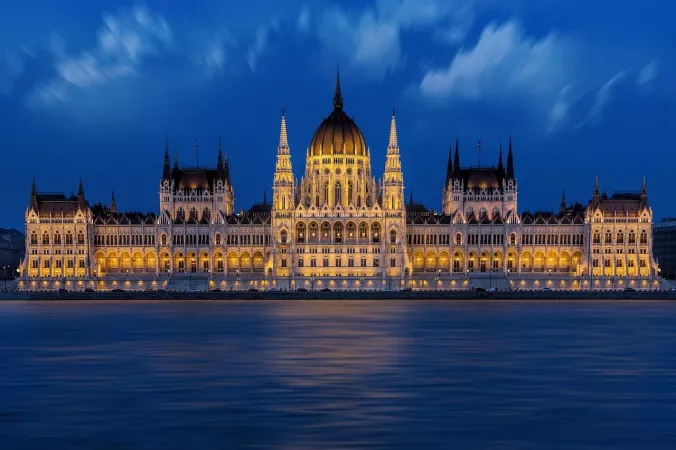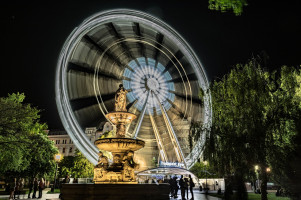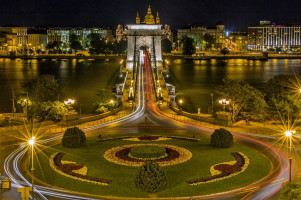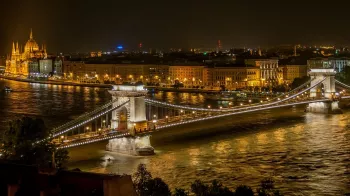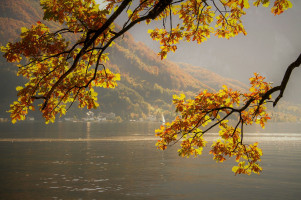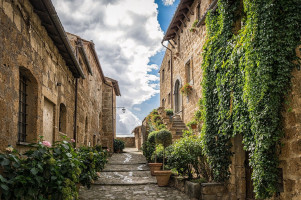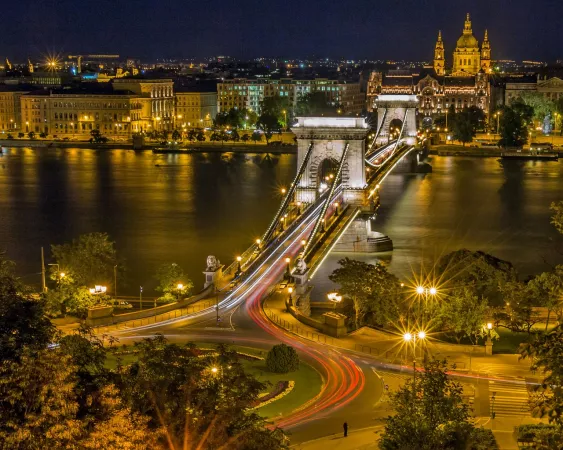
Hungary
Duration
3 to 7 Days
3 to 7 Days
Best time to visit
May-Jun, Sep
May-Jun, Sep
Theme
Heritage
Heritage
Hungary Travel Guide
Hungary, located in Central Europe, is a landlocked country known for its rich history, stunning architecture, and vibrant culture. With a diverse landscape that includes the Danube River and the beautiful Lake Balaton, Hungary offers visitors a mix of urban exploration and natural beauty. The country has a fascinating history, with influences from the Romans, Turks, and Austrians shaping its unique identity. Hungary is famous for its thermal baths, delicious cuisine, including goulash and paprika-spiced dishes, and its world-renowned wines.Top Attractions in Hungary
1. Budapest: Explore the historic Buda Castle, relax in the thermal baths, and stroll along the Danube River. 2. Eger: Visit the charming Baroque town known for its wine region and the stunning Eger Castle. 3. Székesfehérvár: Discover the ancient capital of Hungary with its royal palaces and beautiful churches. 4. Hortobágy National Park: Experience the vast Puszta plains and traditional Hungarian horse shows. 5. Lake Balaton: Relax on the beaches, enjoy water sports, and visit charming lakeside villages.Hungary is Famous for
Thermal baths and delicious cuisine.Top Attractions in Hungary
- Budapest's historic Buda Castle - Eger's wine region and castle - Székesfehérvár's royal palaces - Hortobágy National Park's Puszta plains - Lake Balaton's beaches and villagesWhat's Great about Travelling to Hungary?
- Rich history and architecture - Thermal baths for relaxation - Delicious cuisine and wines - Scenic landscapes and natural beautyWhat's Not So Great about Travelling to Hungary?
- Language barrier for non-Hungarian speakers - Crowds in popular tourist spots - Limited public transportation in rural areasTravel Tips for Hungary
- Check visa requirements before travel - Use public transportation in cities - Be cautious of pickpockets in tourist areasImportant Hungary trip information
- Ideal Duration: Plan to spend at least a week to explore the main attractions.
- Best Time to Visit: The spring and fall months offer pleasant weather and fewer crowds.
- Nearby Airports and Railway Stations: Budapest Ferenc Liszt International Airport and Budapest Keleti Railway Station are major transportation hubs.
Top 1 Places to visit in Hungary
Per Person
71,766
*EXCLUDING APPLICABLE TAXES 5.0 Ratings
( 393 Reviews )
( 393 Reviews )
Per Person
74,546
*EXCLUDING APPLICABLE TAXES 5.0 Ratings
( 393 Reviews )
( 393 Reviews )
Total
3,31,500
*EXCLUDING APPLICABLE TAXES 5.0 Ratings
( 24 Reviews )
( 24 Reviews )
Per Person
39,872
*EXCLUDING APPLICABLE TAXES 5.0 Ratings
( 393 Reviews )
( 393 Reviews )
Total
4,16,000
*EXCLUDING APPLICABLE TAXES 5.0 Ratings
( 24 Reviews )
( 24 Reviews )
Per Person
3,01,355
*EXCLUDING APPLICABLE TAXES 5.0 Ratings
( 393 Reviews )
( 393 Reviews )
FAQ's on Hungary
Q1: What is the best time to visit Hungary?
Hungary is beautiful year-round, but the best time to visit is during the spring (April to June) and fall (September to October) when the weather is mild, and tourist crowds are fewer. Summer (July to August) is popular for festivals and outdoor activities, while winter (December to February) offers charming Christmas markets.
Q2: Do I need a visa to travel to Hungary?
U.S. and EU citizens do not need a visa for stays up to 90 days. However, check your specific country's requirements. Make sure your passport is valid for at least three months beyond your planned departure date.
Q3: What are the must-visit attractions in Hungary?
Don’t miss the stunning Budapest Castle District, thermal baths like Széchenyi, and the picturesque Danube River. Explore the historic Fisherman's Bastion, Lake Balaton for relaxation, and the charming town of Eger for wine tasting.
Q4: Is Hungary a safe place to travel?
Hungary is generally safe for tourists. Exercise normal precautions and be cautious of pickpocketing in crowded areas. Avoid unlicensed taxis and be aware of your surroundings, especially at night.
Q5: What is the local currency in Hungary and can I use credit cards?
The official currency is the Hungarian Forint (HUF). Credit cards are widely accepted in major establishments, but it's advisable to carry some cash for smaller vendors and markets. ATMs are easily found in cities.
Q6: What is the local cuisine like in Hungary?
Hungarian cuisine is hearty and flavorful, known for dishes like goulash, lángos (fried dough), and chimney cake. Try local wines from the Tokaj region and pálinka (fruit brandy). Vegetarians can enjoy dishes like lecsó (pepper stew) and töltött káposzta (stuffed cabbage).
Q7: What transportation options are available in Hungary?
Hungary has an efficient public transportation system with buses, trams, and metros in major cities like Budapest. Taxis are available, but ensure they are licensed. Renting a car is convenient for exploring rural areas and smaller towns.
Q8: Are there any cultural norms or etiquette I should be aware of when visiting Hungary?
Hungarians value tradition and respect. Greet with a firm handshake, and use titles like "Mr." or "Mrs." when meeting someone. When dining, toast before drinking and wait for the host's invitation to start eating. Dress modestly when visiting churches and cover shoulders.
Q9: I am a travel agent. How can I buy travel leads of Hungary?
Register yourself as a travel agent at agents.tripclap.com and then you can buy travel leads to Hungary once your account is approved. For more details contact our support team at +91-8069186564 or support@tripclap.com
